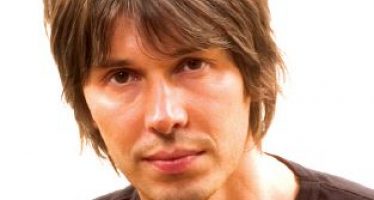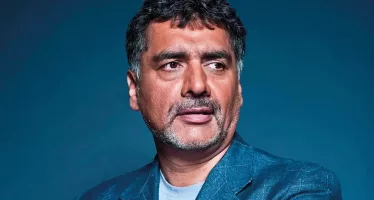Stephen Heintz: Getting the Rockefellers Out of Oil
 The Rockefellers are set to join the Occupy Movement – sort of. The family that built its legendary fortune on oil will now abandon nearly all investments in fossil fuel. The surprising announcement was made in September at the eve of a United Nations summit on climate change that took place in New York.
The Rockefellers are set to join the Occupy Movement – sort of. The family that built its legendary fortune on oil will now abandon nearly all investments in fossil fuel. The surprising announcement was made in September at the eve of a United Nations summit on climate change that took place in New York.
The Rockefeller Brothers Fund (RBF), a philanthropic entity with approximately $860m in assets, is managed by Stephen Heintz who joined the organisation in 2001 after a distinguished career in the non-profit and public sectors. The fund joins a growing number of charitable institutions that have recently decided to move investments away from fossil fuel and into cleaner alternatives.
According to Arabella Advisors, a US consultancy that helps investors allocate resources in socially and environmentally beneficial ways, some 180 institutions and wealthy individuals have over the past few years pledged to divest assets in excess of $50bn. Mr Heintz revealed that the Rockefeller Brothers Fund is in the process of liquidating all its positions in coal companies and corporations involved with tar sands.
Mr Heintz cautioned that the divestment drive will take time: “We are moving soberly, but with real commitment.” The RBF president also said that the fund will hang on to some stocks of fossil fuel companies in order to keep its say at shareholder meetings.
“Mr Heintz considers the move away from fossil fuel a ‘logical step’ that would meet with the approval of the five Rockefeller brothers who created the fund in 1940 as the primary vehicle of their family’s many philanthropic undertakings.”
Mr Heintz considers the move away from fossil fuel a “logical step” that would meet with the approval of the five Rockefeller brothers who created the fund in 1940 as the primary vehicle of their family’s many philanthropic undertakings.
“Just as John D Rockefeller moved the US from whale oil to petroleum in the late 19th century, the current generation needs to help bring about the next shift. We are quite convinced that if John D Rockefeller were alive today, as an astute businessman looking out into the future, he would be moving out of fossil fuels and investing in clean, renewable energy.”
In 2010, the RBF Board of Trustees already decided to set aside 10% of the endowment for investment in sustainable development with a focus on clean energy and businesses that advance energy efficiency and thus mitigate the effects of climate change. Steven Rockefeller, one of the trustees, said that he foresees financial problems for companies that possess more fossil fuel reserves than can be burned without contributing significantly to climate change: “We see this as having both a moral and economic dimension.”
Repeatedly tipped as one of the most influential voices in the non-profit sector, Mr Heintz recognises that divestment may ultimately not impact fossil fuel companies to any noticeable degree due to their immense market capitalisation. However, it does send an important signal. Divestment activism started as a fringe movement on college campuses just a few years ago and has now become mainstream.
The Rockefeller family has long been actively involved with environmental issues and even tried to convince Exxon Mobile, the largest successor to Standard Oil, to mend its environmentally damaging ways – without much success. Also, a $2m fund set up by the Rockefellers in the 1980s to spur the development of renewable energy alternatives failed to survive: “We were too early,” said RBF Chairwoman Valerie Rockefeller Wayne.
However, now RBF President Heintz has few doubts: It is the time to act. “We fully expect the percentage of mission-aligned investments, including those targeted to clean energy development, to grow in the coming years as the organisation seeks solid investments that advance both its programme and long-term financial goals.”
You may have an interest in also reading…
Brian Cox: Science for the Masses
Amongst the remains of Kolmanskop, an old mining town in the Namib Desert, a scrawny metrosexual soliloquizes about the nature
IFC: Addressing Climate Change Can Unlock $23 Trillion-Dollar Investment Opportunities in Emerging Markets
By Christian Grossmann and Thomas Kerr The historic Paris climate change agreement entered into force in record speed last November,
Working Hard — and Loving It: James Caan in his Element
On the face of it, James Caan has the whole enchilada: TV celebrity, philanthropist, and champion of entrepreneurship — with


















































































